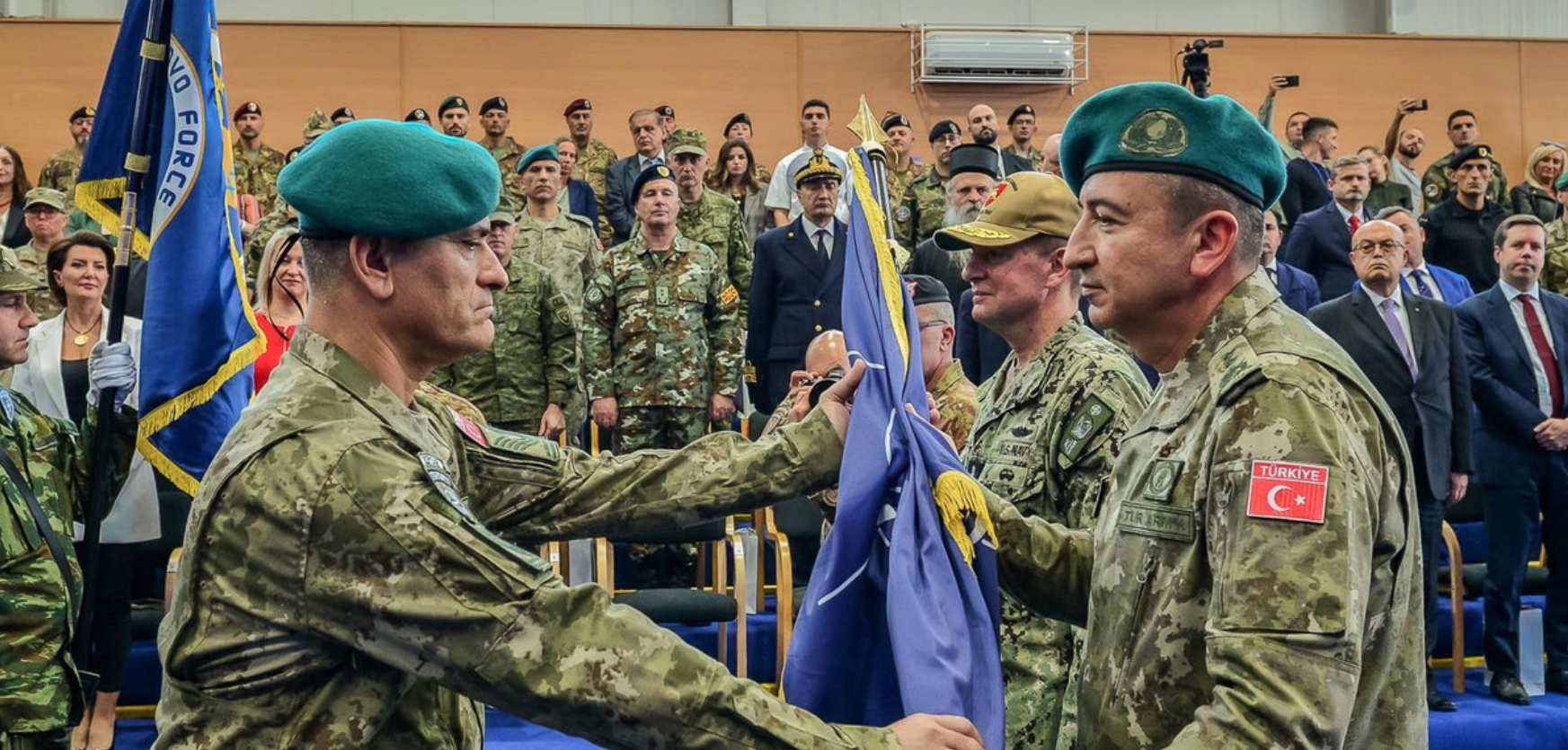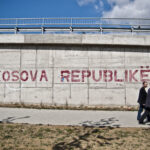Turkish general Özkan Ulutaş took command of international peacekeeping forces in Kosovo. At a ceremony held at the KFOR HQ in Pristina, where Ulutaş received the duties from Italian General Angelo Ristuccia. The event was also attended by the commander of NATO’s Joint Forces in Naples, Stuart Munk, high-ranking officials from Kosovo and representatives of the international community in Kosovo. The change in command of the NATO mission in Kosovo comes at a time when tensions have risen significantly following the killing of Kosovo police officer Afrim Bunjaka in an attack by an armed group of local Serbs in the village of Banjska in the Zubin Potok municipality, northern Kosovo.
Turkey ranks second among the 27 countries that have their soldiers as part of KFOR. The KFOR mission in Kosovo was launched on June 12, 1999 by UN Security Council Resolution 1244, and involves about 4,500 military personnel from 27 countries, including 21 NATO member states and six non-NATO countries. On October 10, 2022, Italy took over command of KFOR from Hungary, and now this role has passed to Turkey. The Ministry of Defense of Turkey stated that KFOR is one of the most important missions for maintaining peace and stability in the Balkans. Turkey has been part of the mission since its inception. With additional operational forces, it is one of the mission’s backbones. Turkey has strong cultural and historical ties with the region and considers the KFOR mission critical given its key role in peacekeeping. Ankara announced continued support for the mission’s mandate.
It must be remembered that at its peak capacity, KFOR had 50,000 servicemen in its ranks. Initially, the KFOR group consisted of four multinational brigades, each assigned its own sector of responsibility. In 2005, these forces were transformed into five operational directions. By September 2012, the group was reduced to 5,000 soldiers and officers.
In September 1999, Russian peacekeepers were involved in the bloodiest incident since the launch of KFOR, shooting dead three Serbs who opened fire on them. In 2003, the Russian contingent (650 servicemen) was withdrawn from Kosovo. The main reasons for the withdrawal of Russian troops were, as stated by Moscow, the lack of real interests in the Balkans, as well as financial challenges. However, after Vladimir Putin was re-elected for the second time in 2004 amid the rise in global energy prices, the sale of which significantly replenishes the Russian budget, Moscow sharply changes its course and pursues a policy of intervention in the affairs of its neighboring countries and states from the former USSR, as well as once again becomes proactive in the Western Balkans in order to strengthen its presence in region. The Kremlin is betting on trigger-happy forces ready to unleash war again in the region, so radical groups and chauvinist organizations in Serbia receive systematic funding from Moscow. Russia’s involvement in the latest bloody provocation in the north of Kosovo can’t be ruled out. Igniting a large-scale conflict in the Western Balkans fully corresponds to Russia’s intentions to destabilize the region, which thanks to KFOR and the EU police mission has so far been avoided.
The actions of Hamas were more targeted and massive in nature than the terrorist attack in Banjska, but in both cases, Russian intelligence’s provocative signature, which involves the local population in a wide armed conflict, can be sensed in the air. In Israel, the colossal provocation became possible due to the greater internal Palestinian-Israeli enmity and the presence of a large terrorist group ready for any level of violence. The scale of the provocation in Banjska is incomparably smaller, but it cannot be ruled out that Moscow will again try to unleash an armed conflict of rather high intensity in Kosovo. But NATO troops and EU police are stationed in Kosovo, posing a serious obstacle for the Kremlin to play out a bloody scenario there. KFOR stands guard in the interests of peace and stability and remains a significant factor in ensuring security in Kosovo as a whole, and more precisely in its north. Some political forces in Belgrade have realized the futility of Serbia’s armed intervention in northern Kosovo, so they are betting that the security functions in this territory will be transferred from the local police to KFOR, which they claim will calm local Serbs. But Brussels and Washington are well aware that it is about the security isolation of the north from the whole of Kosovo, which can be considered a step toward a separate existence of the area without organizational and political control from Pristina. Therefore, the KFOR leadership has repeatedly emphasized that it provides assistance in maintaining security to Kosovo’s law enforcement without the intention of replacing them. KFOR remains a symbol of peace and security in Kosovo.



